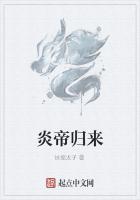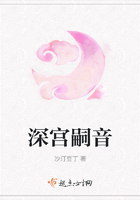"Breathe, Sire.The proof is here.Matrena Petrovna necessarily had the ipecac on her, because after the sickness she had not the time for going to find it.Do you understand, Sire? Between the moment when she fled from the kiosk and when she returned there, she had not the actual time to go to her medicine-closet to find the ipecac.""How have you been able to compute the time?" asked the Emperor.
"Sire, the Lord God directed, Who made me admire Feodor Feodorovitch's watch just when we went to read, and to read on the dial of that watch two minutes to the hour, and the Lord God directed yet, Who, after the scene of the poison, at the time Matrena returned carrying the ipecac publicly, made the hour strike from that watch in the general's pocket.
"Two minutes.It was impossible for Matrena to have covered that distance in two minutes.She could only have entered the deserted datcha and left it again instantly.She had not taken the trouble to mount to the floor above, where, she told us and repeated when she returned, the ipecac was in the medicine-closet.She lied!
And if she lied, all is explained.
"It was the striking of a watch, Sire, with a striking apparatus and a sound like the general's, there in the quarters of the revolutionaries, that roused my memory and indicated to me in a second this argument of the time.
"I got down from my gallows-scaffold, Your Majesty, to experiment on that time-limit.Oh, nothing and nobody could have prevented my ****** that experiment before I died, to prove to myself that Rouletabille had all along been right.I had studied the grounds around the datcha enough to be perfectly exact about the distances.
I found in the court where I was to be hanged the same number of steps that there were from the kiosk to the steps of the veranda, and, as the staircase of the revolutionaries had fewer steps, Ilengthened my journey a few steps by walking around a chair.
Finally, I attended to the opening and closing of the doors that Matrena would have had to do.I had looked at a watch when Istarted.When I returned, Sire, and looked at the watch again, Ihad taken three minutes to cover the distance - and it is not for me to boast, but I am a little livelier than the excellent Matrena.
"Matrena had lied.Matrena had simulated the poisoning of the general.Matrena had coolly poured ipecac in the general's glass while we were illustrating with matches a curious-enough theory of the nature of the constitution of the empire.""But this is abominable!" cried the Emperor, this time definitely convinced by the intricate argument of Rouletabille."And what end could this imitation serve?'""The end of preventing the real crime! The end that she believed herself to have attained, Sire, to have Natacha removed forever - Natacha whom she believed capable of any crime.""Oh, it is monstrous! Feodor Feodorovitch has often told me that Matrena loved Natacha sincerely.""She loved her sincerely up to the day that she believed her guilty.
Matrena Petrovna was sure of Natacha's complicity in Michael Nikolaievitch's attempt to poison the general.I shared her stupor, her despair, when Feodor Feodorovitch took his daughter in his arms after that tragic night, and embraced her.He seemed to absolve her.It was then that Matrena resolved within herself to save the general in spite of himself, but I remain persuaded that, if she had dared such a plan against Natacha, it would only be because of what she believed definite proof of her step-daughter's infamy.
These papers, Sire, that you have shown me, and which show, if nothing more, an understanding between Natacha and the revolutionaries, could only have been in the possession of Michael or of Natacha.Nothing was found in Michael's quarters.Tell me, then, that Matrena found them in Natacha's apartment.Then, she did not hesitate!""If one outlined her crime to her, do you believe she would confess it? asked the Emperor.
"I am so sure of it that I have had her brought here.By now Koupriane should be here at the chateau, with Matrena Petrovna.""You think of everything, monsieur."
The Tsar moved to ring a bell.Rouletabille raised his hand.
"Not yet, Sire.I ask that you permit me not to be present at the confusion of that brave, heroic, good woman who has loved me much.
But before I go, Sire - do you promise me?"The Emperor believed he had not heard correctly or did not grasp the meaning.He repeated what Rouletabille had said.The young reporter repeated it once more:
"Do you promise? No, Sire, I am not mad.I dare to ask you that.
I have confided my honor to Your Majesty.I have told you Natacha's secret.Well, now, before Matrena's confession, I dare to ask you:
Promise me to forget that secret.It will not suffice merely to give Natacha back again to her father.It is necessary to leave her course open to her - if you really wish to save General Trebassof.What do you decide, Sire?""It is the first time anyone has questioned me, monsieur.""Ah, well, it will be the last.But I humbly beg Your Majesty to reply.""That would be many millions given to the Revolution.""Oh, Sire, they are not given yet.The general is sixty-five, but he has many years ahead of him, if you wish it.By the time he dies - a natural death, if you wish it - your enemies will have disarmed.""My enemies!" murmured the Tsar in a low voice."No, no; my enemies never will disarm.Who, then, will be able to disarm them?" added he, melancholily, shaking his head.
"Progress, Sire! If you wish it."
The Tsar turned red and looked at the audacious young man, who met the gaze of His Majesty frankly.
"It is kind of you to say that, my young friend.But you speak as a child.""As a child of France to the Father of the Russian people."It was said in a voice so solemn and, at the same time, so *****ly touching, that the Tsar started.He gazed again for some time in silence at this boy who, this time, turned away his brimming eyes.
"Progress and pity, Sire."















